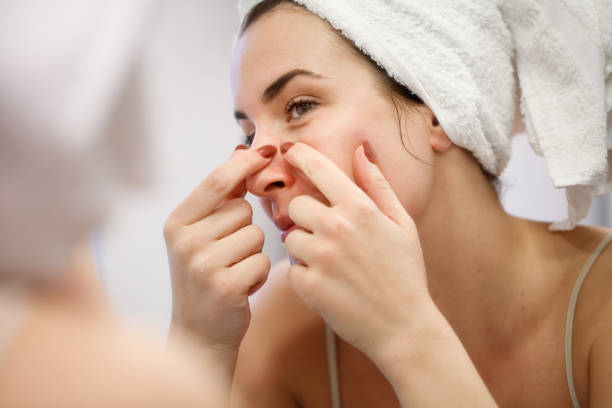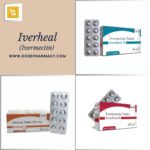Acne is one of the most common skin conditions, affecting millions of people worldwide. While it’s most often associated with adolescence, it can affect individuals of all ages. Whether you’re dealing with occasional breakouts or persistent acne, understanding its causes and treatment options can help you take control of your skin health. If you looking for acne treatment then you can take Isotretinoin 20mg to get acne free skin. In this article, we’ll dive into the causes of acne and explore effective treatment methods to help you achieve clear, healthy skin. 😊
What Causes Acne?
Acne develops when hair follicles become clogged with oil, dead skin cells, and sometimes bacteria. These blockages can lead to inflammation, which manifests as pimples, blackheads, and cysts. But what causes these blockages in the first place? Let’s take a closer look at the common factors that contribute to acne development.
-
Hormonal Changes 💥
One of the leading causes of acne is hormonal fluctuations. These changes are especially common during puberty when the body is going through a major growth spurt. Hormones such as androgens increase, causing the sebaceous glands to produce more oil. This excess oil can mix with dead skin cells and clog hair follicles, leading to acne.
Hormonal changes also occur during menstruation, pregnancy, and in people using birth control pills or undergoing hormone replacement therapy (HRT). Even stress can cause hormonal changes that trigger breakouts. Understanding this connection can help individuals find better ways to manage their acne and hormones.
-
Excess Oil Production 🛢️
The skin’s sebaceous glands are responsible for producing oil (sebum) to keep the skin lubricated. However, sometimes these glands can go into overdrive, producing more oil than the skin needs. When this excess oil mixes with dead skin cells, it can form a plug in the pores, creating the perfect breeding ground for acne-causing bacteria.
-
Bacteria 🦠
The skin is home to various bacteria, but Propionibacterium acnes (P. acnes) is the main bacterium involved in acne development. When hair follicles become blocked, this bacteria can multiply, leading to inflammation. This inflammation causes the skin to become red and swollen, which leads to pimples, pustules, or cysts. Bacteria thrive in the blocked pores, aggravating the acne further and making it more challenging to clear up.
-
Diet 🍔🍕
While diet isn’t the sole cause of acne, certain foods can exacerbate the condition for some people. Diets that are high in sugar, dairy, and refined carbohydrates can trigger acne breakouts in susceptible individuals. Studies suggest that foods with a high glycemic index, such as white bread, sugary snacks, and sodas, can lead to spikes in insulin and blood sugar levels, which may trigger acne.
Additionally, dairy products such as milk, cheese, and yogurt have been linked to an increase in acne, although the exact mechanism is not fully understood. However, adopting a balanced diet rich in fruits, vegetables, and whole grains can potentially improve acne and support overall skin health.
-
Genetics 🧬
If acne runs in your family, you are more likely to experience it yourself. Genetics play a significant role in determining how your body responds to oil production and inflammation. Some individuals naturally have oilier skin, while others may have a higher tendency to develop acne. Family history can also influence how the body reacts to hormonal changes, which can directly affect acne development.
-
Medications 💊
Certain medications can cause or worsen acne as a side effect. For instance, oral contraceptives, steroids, or medications that affect hormone levels can lead to acne flare-ups. Some drugs used to treat conditions like epilepsy or depression may also have acne as a side effect. If you suspect your medication is causing acne, it’s essential to consult with a healthcare provider to discuss alternative treatments.
-
Poor Skincare Habits 🧼
Sometimes, acne can be aggravated by improper skincare habits. Over-washing the skin, using harsh products, or applying comedogenic (pore-clogging) makeup can all contribute to acne. While it’s important to keep the skin clean, washing your face too often or using strong exfoliants can strip the skin of its natural oils, leading to irritation and more breakouts.
Using the wrong products for your skin type—especially those with heavy fragrances or chemicals—can also cause clogging of the pores and increase acne risk. It’s essential to use products suited to your skin type and ensure they are non-comedogenic (won’t clog pores).
Treatment for Acne
Now that we know what causes acne, it’s time to discuss effective treatments to help clear your skin. There are numerous treatment options available, from over-the-counter products to prescription medications, and even lifestyle changes. Here’s a breakdown of common treatments for acne:
-
Topical Treatments 🧴
Topical treatments are usually the first line of defense against acne. These products are applied directly to the skin to target the acne lesions. Some of the most common active ingredients in topical treatments include:
- Salicylic Acid: A beta hydroxy acid (BHA) that helps exfoliate the skin, unclog pores, and reduce inflammation.
- Benzoyl Peroxide: Known for its antibacterial properties, benzoyl peroxide helps to kill acne-causing bacteria and reduce inflammation.
- Retinoids: Retinoid creams and gels (like adapalene) are derived from vitamin A and are effective at promoting cell turnover, preventing clogged pores, and treating acne.
These topical treatments can often be purchased without a prescription and can work well for mild to moderate acne.
-
Oral Medications 💊
For more severe acne or when topical treatments aren’t enough, a doctor may prescribe oral medications. These medications target acne from the inside out and can be more effective for persistent breakouts. Some common oral medications include:
- Antibiotics: Oral antibiotics like tetracycline, doxycycline, and minocycline help reduce inflammation and kill acne-causing bacteria.
- Oral Contraceptives: Birth control pills can regulate hormones, which in turn can reduce acne caused by hormonal fluctuations.
- Isotretinoin (Accutane): For severe cases of acne that don’t respond to other treatments, isotretinoin can be prescribed. It works by shrinking the sebaceous glands, reducing oil production, and preventing clogged pores. you can take buy accutane online from dose pharmacy.
-
Professional Treatments 🌟
If over-the-counter or prescription medications aren’t providing results, you might consider professional treatments. Dermatologists offer various procedures to help reduce acne and improve skin appearance:
- Chemical Peels: A chemical solution is applied to the skin to exfoliate dead skin cells, unclog pores, and reduce acne scarring.
- Laser Therapy: Laser treatments target the deeper layers of skin, reducing oil production and killing acne-causing bacteria.
- Drainage and Extraction: For cystic acne, a dermatologist can drain and extract the pus from painful cysts to speed up healing.
-
Lifestyle Changes 🥗
While treatments are essential, lifestyle changes can also support acne management. A balanced diet rich in antioxidants, healthy fats, and anti-inflammatory foods can improve skin health. Additionally, practicing good hygiene—such as regularly washing your face and avoiding touching your face—can prevent acne flare-ups.
-
Home Remedies 🌿
Some people find relief from acne using natural remedies. While they may not be as effective as prescription treatments, they can help soothe the skin. Common home remedies include using honey (known for its antibacterial properties), aloe vera gel (soothing and anti-inflammatory), or tea tree oil (a natural antiseptic).
Acne can be frustrating, but with the right knowledge and treatment, it’s possible to manage and even prevent breakouts. By understanding the causes—whether they’re hormonal, genetic, or lifestyle-related—and combining effective treatments with healthy habits, you can take steps toward clearer, healthier skin. Don’t forget to consult a healthcare professional if your acne persists or worsens; they can help guide you toward the best treatment plan for your skin. 🌟
Remember, acne is a common condition, and you’re not alone. Be patient with your skin, and find the right approach that works for you! 😊


